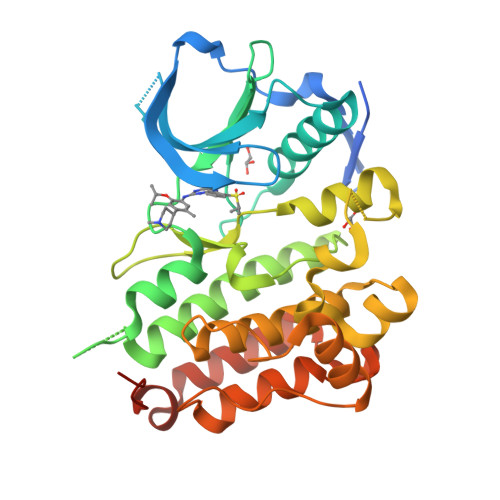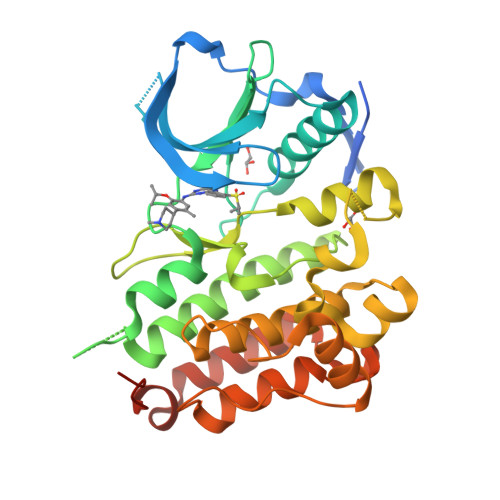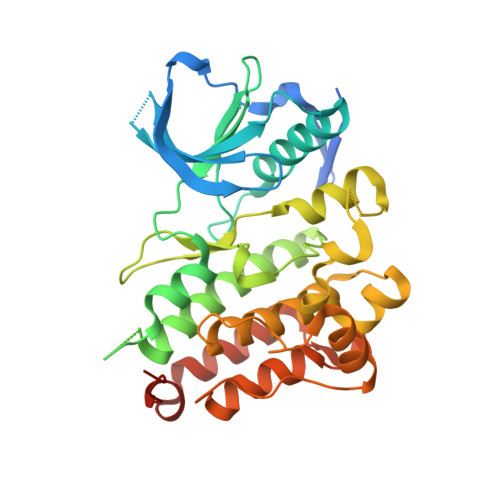Design and synthesis of novel selective anaplastic lymphoma kinase inhibitors.
Michellys, P.Y., Chen, B., Jiang, T., Jin, Y., Lu, W., Marsilje, T.H., Pei, W., Uno, T., Zhu, X., Wu, B., Nguyen, T.N., Bursulaya, B., Lee, C., Li, N., Kim, S., Tuntland, T., Liu, B., Sun, F., Steffy, A., Hood, T.(2016) Bioorg Med Chem Lett 26: 1090-1096
- PubMed: 26750252
- DOI: https://doi.org/10.1016/j.bmcl.2015.11.049
- Primary Citation of Related Structures:
4Z55 - PubMed Abstract:
Anaplastic lymphoma kinase (ALK) is a receptor tyrosine kinase belonging to the insulin receptor superfamily. Expression of ALK in normal human tissues is only found in a subset of neural cells, however it is involved in the genesis of several cancers through genetic aberrations involving translocation of the kinase domain with multiple fusion partners (e.g., NPM-ALK in anaplastic large cell lymphoma ALCL or EML4-ALK in non-small cell lung cancer) or activating mutations in the full-length receptor resulting in ligand-independent constitutive activation (e.g., neuroblastoma). Here we are reporting the discovery of novel and selective anaplastic lymphoma kinase inhibitors from specific modifications of the 2,4-diaminopyridine core present in TAE684 and LDK378. Synthesis, structure activity relationships (SAR), absorption, distribution, metabolism, and excretion (ADME) profile, and in vivo efficacy in a mouse xenograft model of anaplastic large cell lymphoma are described.
Organizational Affiliation:
Genomics Institute of the Novartis Research Foundation, 10675 John Jay Hopkins Drive, San Diego, CA 920121, United States.


















